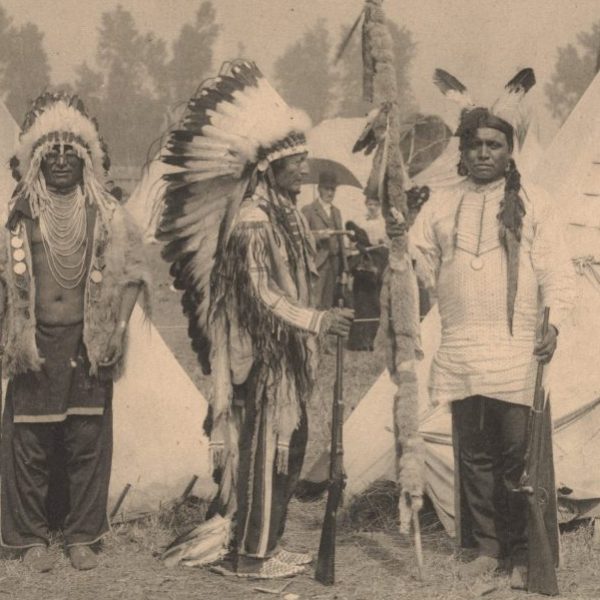Complicity with Evil
Adam LeBor’s new book “Complicity with Evil” – The United Nations in the Age of Modern Genocide was published in the US and UK in November 2006. It is a controversial, powerful and thought-provoking book which asks important questions about the legacy of the United Nations under Kofi Annan and its future under his successor, Ban Ki-Moon. The book has triggered massive media interest in the UK and US, including a lengthy interview with NPR’s Leonard Lopate, in NYC. The author here answers some questions about the book and why he wrote it.
Listen to the full interview here.
Q: What inspired you to write Complicity with Evil-The United Nations in the Age of Modern Genocide?
A: The book is rooted, most of all, in my experiences as a correspondent during the Yugoslav wars. The time that I spent in Sarajevo in the summer of 1992, and in other parts of Bosnia during 1993, had a profound effect on me. I could not believe then, and still cannot believe now, that Europe, and the world, in the late twentieth century, could simply sit back and let a multi-cultural, cosmopolitan country be pounded into rubble by an army that targeted women, children and civilians. I previously wrote a critically acclaimed biography of Slobodan Milosevic, which further investigated western policy towards the Balkans and the complete lack of political will to stop the ethnic cleansing and killing. Complicity with Evil-The United Nations in the Age of Modern Genocide was actually commissioned by John Kulka at Yale University Press in the US. John and I discussed writing a work that would investigate the UN’s catastrophic failure in Srebrenica in July 1995, when 8,000 Muslim men and boys were led to their deaths by Dutch UN peacekeepers. Tragically though, Srebrenica was not an isolated incident, but part of a repeating pattern of failure by the UN to confront genocide. It happened a year earlier, in Rwanda in 1994, when 800,000 people were killed by Hutu militias and genocide continues now in Sudan, where more than 400,000 have died and more than two million been made homeless in the conflict in Darfur. That’s why the book focuses as much on Darfur, an ongoing crisis, as well as the tragedies of Rwanda and Srebrenica, which happened over a decade ago.
Q: The book’s title Complicity with Evil-The United Nations in the Age of Modern Genocide seems quite provocative – isn’t this just more ‘UN-bashing’?
A: No, absolutely not. The title is provocative, but these are the UN’s own words, for there are many hard-working and idealistic UN officials who still believe in the UN’s founding humanitarian ideals and recognize the organisation’s faults. The title is actually an extract from a UN report on peacekeeping operations, published in August 2000. The report was commissioned by Secretary-General Kofi Annan, who convened a high-level panel of diplomats, officers and peacekeepers to examine how to hopefully prevent further disasters such as took place in Rwanda and Srebrenica, which many blamed on the UN’s obsession with remaining neutral, even while innocents were slaughtered all around. The report’s executive summary notes: ‘Impartiality for United Nations operations must therefore mean adherence to the principles of the Charter; where one party is clearly and incontrovertibly is violating its terms, continued equal treatment of the parties by the United Nations can in the best case result in ineffectiveness and in the worst may amount to complicity with evil’. I make clear throughout the book my respect for the UN’s humanitarian staff who have saved many thousands of lives in crisis zones, often working in conditions of great danger.
Q: You emphasise the role of the Secretariat, the permanent UN officials, as well as the member states and the Security Council. Why is that?
A: One of the key arguments of my book is that the relationship between the Secretariat and the Security Council needs to be reformed. In all three crises examined in Complicity with Evil-The United Nations in the Age of Modern Genocide, secretariat officials have prioritised the political demands of the Security Council over the UN’s founding humanitarian mission. Kofi Annan, head of peacekeeping during both the Rwandan genocide and the Bosnian war, helped shape UN policy as well as implement it. In January 1994 he refused General Dallaire, the commander of the UN mission in Rwanda, permission to raid the Hutu arms caches, and did not tell the Security Council that General Dallaire had asked to do so. In May 1995, Yasushi Akashi, the most senior UN official in the field in the former Yugoslavia, refused to authorise an airstrike against the Bosnian Serbs after they shelled Sarajevo, even though there was a mandate to do so. One of Akashi’s reasons was that such an airstrike would ‘weaken’ the then Serbian President Slobodan Milosevic. With regard to Darfur, in 2003 the powerful Department of Political Affairs downplayed a year’s worth of warnings from the field about the atrocities there because the DPA wanted to prioritise a separate peace agreement over the conflict in southern Sudan. These were decisions taken not by the Security Council, but by UN officials. It is not only legitimate, but vital, to examine the role and influence of UN officials on the UN’s decisions and actions on subsequent events, especially when the consequences can be so tragic.
Q: You are very critical of the UN Commission on Human Rights.
A: The UN was founded by the victorious Allies in San Francisco in 1945. Fifty countries signed the UN Charter, which calls on its member states to ‘save succeeding generations from the scourge of war’ and to ‘reaffirm faith in fundamental human rights, in the dignity and worth of the human person, in the equal rights of men and women and of nations large and small’. By the early 21st century these noble sentiments had been thoroughly debased. Sudan, for example, remained a member of the Commission on Human Rights during 2003, 2004 and 2005. Other members included Libya, China, Cuba and Russia. Zimbabwe was a member in 2005, the same year that President Robert Mugabe ordered Operation Murambatsvina, meaning ‘drive out trash’. The army and police launched a lightening demolition campaign which left 700,000 people with nowhere to eat, work or sleep. The biggest single act of social destruction in Africa for years passed uncondemned by both the Commission on Human Rights and the General Assembly, although Kofi Annan called it a ‘catastrophic injustice’. The Commission has now been replaced by a Human Rights Council but which is also very unsatisfactory. Sudan and Zimbabwe did not stand for election, but Cuba, China and Saudi Arabia all won seats.
Q: What kind of reforms does the UN need to make?
A: The UN needs to revert to its founding humanitarian mission. Member states that egregiously flout its founding documents: the Charter, the Declaration on Human Rights and the Genocide Convention should be sanctioned, suspended and ultimately expelled. Only when member states are penalised for their abuses will the UN regain its credibility. It is clearly absurd, for example, for Sudan to remain a member state of the UN but at the same time refuse to accept UN peacekeepers in Darfur. All member states have agreed to the principles of the ‘Responsibility to Protect’ their populations against war crimes and genocide. If Sudan is unable to do this, as is evident in Darfur, where the government itself is organising ethnic cleansing and genocide, and refuses to accept UN peacekeepers then it should not be allowed to remain a member of the UN.
Q: What lessons has the UN learned from its failures in Srebrenica, Rwanda and Darfur?
A: The UN reports on the organisation’s actions in Srebrenica and Rwanda are detailed works of historical record. I found them to be invaluable resources, especially recording the actions of various officials in the peacekeeping department such as Kofi Annan and his deputy Iqbal Riza. The UN’s report on ethnic cleansing in Darfur is also an extremely important document, setting out in detail the role of the Sudanese government and its forces in the destruction of the communities of Darfur and their human cost. However these reports seem to have little impact on the way the UN works. Many of the officials implicated in the UN’s greatest failures were subsequently promoted: the most prominent example being Kofi Annan himself, who also brought several of his prot¨¦g¨¦s to the 38th floor, where he has his offices, with him. There seems to be no sense of shame at the UN for being involved in its failures, and there are no administrative sanctions, let alone judicial ones against staff who make mistakes or perform poorly. The lessons of bad management, poor communications, unwillingness to take responsibility, lack of moral courage and so may be learnt, they do not seem to be applied.
Q: What kind of legacy will Kofi Annan leave behind?
A: A decidedly mixed one. I am critical of his personal record as head of peacekeeping, for reasons outlined above. During his term, especially in recent years, the UN has been battered by scandals, from the sexual abuse of women and children by UN peacekeepers in Congo to the greatest financial scam in history, the ‘Oil for Food’ programme which was administered by the UN. Even so, the blue flag still embodies the hopes of millions for a better world. Part of the problem is that the UN is now engaged in very complex tasks which its founders after the Second World War did not foresee. The UN has administered post-conflict territories such as Kosovo and Timor-Leste, with some success. The UN despatches human rights monitors to countries where abuses are taking place. UN peacekeepers in countries such as Congo and Liberia have taken a much more robust stance than their predecessors in Bosnia, for example. The UN tribunals for the former Yugoslavia and Rwanda have brought some of the perpetrators of war crimes to justice and have established a historical record of events. To some extent the organisation has far outgrown its original purpose. It now needs the resources, commitment and leadership to prevent future failures and build on its successes.

























